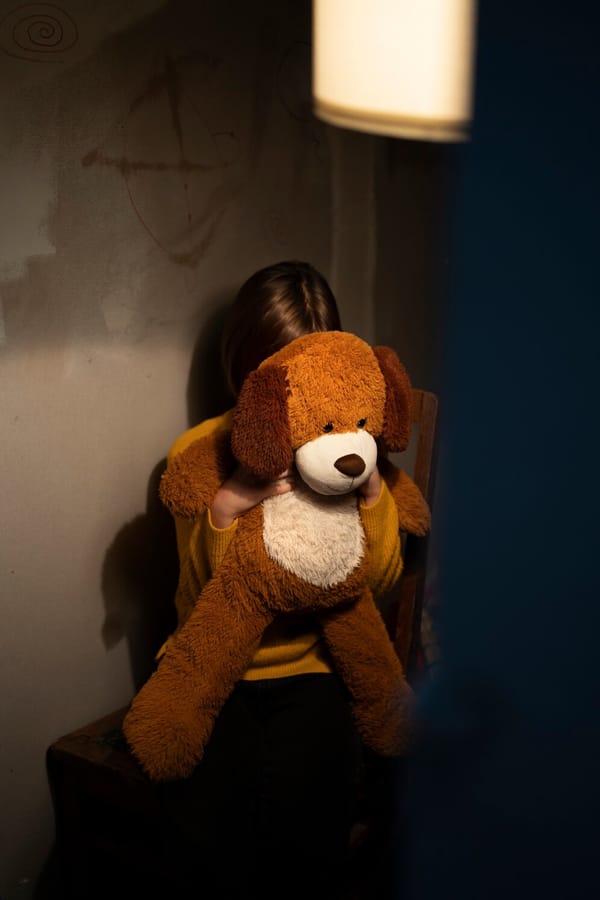Daycare During Illness: What Parents Should Know

As a parent, it’s always tough to balance the responsibilities of work, childcare, and your child’s health, especially when they’re under the weather. One of the most difficult decisions you may face is whether to send your child to daycare when they’re sick. Illnesses, even common ones like colds or stomach bugs, can quickly spread in daycare environments, leading to concern for both your child and others in the care facility.
At the same time, we know that life doesn’t always follow a perfect schedule, and sometimes, the pressures of work and other responsibilities make it hard to stay home. So, what do parents need to know about daycare during illness? In this blog, we’ll explore the best practices for daycare when your child is sick, including when it’s okay to send them, when to keep them home, and how daycare providers help manage illness in a safe and responsible way.
1. When Should You Keep Your Child Home from Daycare?
While it can be tempting to send your child to daycare to avoid missing work or disrupting your routine, keeping your sick child at home is sometimes the best choice for everyone involved. Here are some general guidelines on when to keep your child home:
- Fever: If your child has a fever of 100.4°F (38°C) or higher, they should stay home until they are fever-free for at least 24 hours without medication.
- Vomiting or Diarrhea: If your child has had vomiting or diarrhea within the last 24 hours, they should stay home. Daycares typically have strict policies on stomach-related illnesses to avoid outbreaks among other children.
- Coughing and Sneezing: While a mild cough or sneeze might be okay, excessive coughing or sneezing can spread germs, especially if your child is not able to cover their mouth or nose properly. If they’re feeling unwell and contagious, it’s best to keep them home.
- Rashes or Skin Infections: If your child has a rash, sores, or signs of a skin infection, it’s important to consult with a doctor before sending them to daycare. Some skin conditions can be contagious, and daycare providers may need a note from the doctor clearing your child to return.
- Conjunctivitis (Pink Eye): If your child has conjunctivitis, also known as pink eye, they should stay home until the doctor confirms they’re no longer contagious, which is usually after 24 hours of antibiotic treatment.
- General Lethargy or Irritability: If your child is simply too tired, cranky, or lacking in energy due to illness, it may be better to keep them home and let them rest so they can recover quickly.
Daycare centers typically have specific illness policies to prevent the spread of contagious diseases. It’s essential to review and follow these guidelines to ensure the health and safety of all children in the center.
2. How Daycares Handle Illnesses and Contagion
Daycare centers work hard to maintain a healthy environment and minimize the spread of illness. Here’s how they manage sickness and what you can expect:
- Strict Illness Policies: Most daycare centers have clear, written policies about illness and the procedures they follow when a child is sick. This includes keeping children who are ill away from healthy children, isolating them from others until parents can pick them up, and requiring medical clearance before returning to daycare.
- Sanitization and Cleaning: Daycares take extra precautions when it comes to cleaning and sanitizing the facility. High-touch areas such as toys, doorknobs, and tables are disinfected regularly to reduce the risk of cross-contamination. Many daycares also sanitize play areas, mats, and equipment after each use.
- Health Monitoring: Caregivers are trained to watch for signs of illness and know when to contact parents. If a child shows symptoms of illness during the day, such as a fever or vomiting, daycare providers will promptly contact the parent to pick up the child.
- Staff Health Precautions: Daycare staff members are often required to follow strict health protocols as well. Many facilities require staff to stay home if they’re sick, ensuring that they don’t inadvertently spread germs to children.
3. When to Return to Daycare After Illness
Knowing when it’s safe for your child to return to daycare after being sick is crucial in preventing the spread of germs. Here are some general guidelines on when it’s okay to send your child back:
- Fever-Free for 24 Hours: After a fever, it’s important for your child to be fever-free for at least 24 hours without the aid of fever-reducing medications like acetaminophen or ibuprofen.
- No Vomiting or Diarrhea: If your child has had vomiting or diarrhea, they should be symptom-free for at least 24 hours before returning to daycare.
- Completion of Treatment: For certain illnesses like pink eye or strep throat, children must complete a prescribed course of antibiotics and be symptom-free before returning to daycare. It’s important to follow your doctor’s advice to ensure your child is no longer contagious.
- Energy Levels Restored: Even if your child no longer has a fever or visible symptoms, they should feel well enough to participate in daycare activities. If they’re still feeling lethargic or tired, it may be best to let them rest another day at home.
Always consult with your child’s healthcare provider to determine when it’s safe for them to return to daycare.
4. How to Prevent Illness in Daycare
While it’s impossible to completely eliminate the risk of illness, there are steps both daycare providers and parents can take to minimize the chances of sickness spreading:
- Handwashing: One of the most effective ways to prevent illness is through regular handwashing. Children should be taught to wash their hands before eating, after using the restroom, and after playing outside. Daycare staff will also reinforce these habits.
- Vaccinations: Make sure your child is up-to-date on all recommended vaccinations. This helps protect them from preventable diseases like the flu, measles, and chickenpox. Many daycare centers require proof of vaccination before enrollment.
- Staying Home When Sick: If your child is showing signs of illness, it’s crucial to keep them home until they’re no longer contagious. This prevents the spread of germs and gives your child the time they need to fully recover.
- Good Hygiene Practices at Home: At home, ensure that your child understands the importance of coughing or sneezing into their elbow and using tissues when necessary. You can also encourage your child to avoid sharing food or drinks with others to prevent the spread of germs.
5. What Parents Can Do to Help
As a parent, there are steps you can take to support your child’s health while they’re in daycare:
- Communicate with Caregivers: If your child is showing early signs of illness, let the daycare staff know immediately. This way, they can be extra vigilant and take precautions to avoid the spread of germs to other children.
- Provide Necessary Supplies: If your child requires medication or other supplies to manage illness (such as allergy medication or a special blanket), be sure to provide them to daycare along with clear instructions for use.
- Stay Informed: Be sure to review the daycare’s illness policy and stay updated on any changes to their health protocols. This helps you make informed decisions when your child is sick.
Conclusion
Handling daycare during illness can be a tricky balancing act, but by understanding when to keep your child home, how daycare centers manage illness, and how you can help, you can ensure that your child is safe, healthy, and well-cared-for. Following the guidelines and maintaining open communication with your daycare provider will help minimize the spread of illness and ensure your child is on the road to recovery as quickly as possible.
At the end of the day, keeping your child home when they’re unwell helps protect their health and the health of others, allowing them to return to daycare feeling better and ready to learn and play once again.




